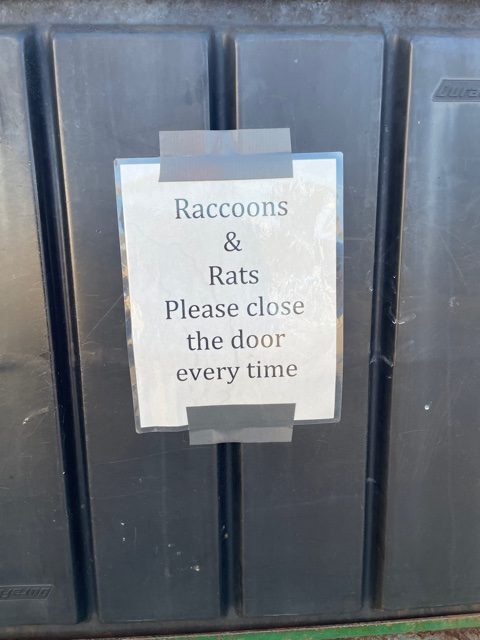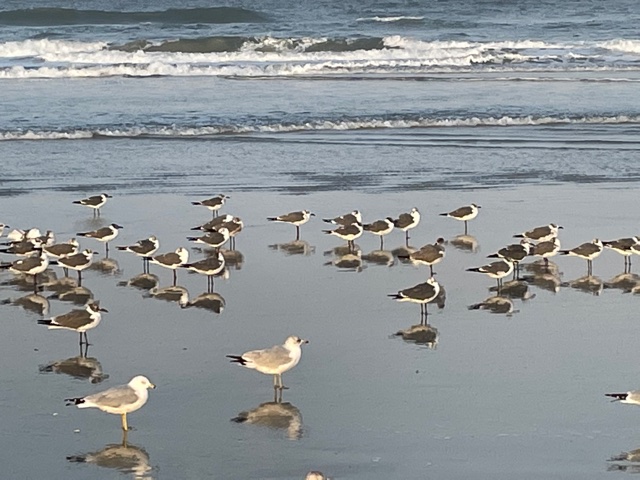Rita and I bike a lot with our Quadracycle on the rails to trails in our beautiful section of Pennsylvania. What I learned over the years is a high-quality gear oil, a lubricant, can make the journey a lot easier and so much more enjoyable! If you fail to lubricate the chain and wheel bearings, friction builds up thus making the going much more difficult. Actually if you neglect to apply the gear oil, over time the friction can begin to break down the metal and you’ll eventually find yourself stranded along the trail!
I believe there is also a lubricant for our life journey that enables us to keep going through all the ups and downs we encounter. It reduces friction and promotes healing within us and in our relationships. Without it, we too may break down over time. This amazing life lubricant that can both ease our challenges and create joy in our daily journey is humor.

Photo by Thomas Thompson on Unsplash.com
Years ago I developed a wellness model which I use to track and promote holistic health in my counseling and coaching clients. There are 10 areas we focus on, including physical, emotional, spiritual, communal, etc. The tenth I labeled “funal” since all of my other nine areas of focus ended in “al”!
It’s important to understand that fun and play are far from trivial or frivolous; they are absolutely necessary for us to experience and maintain lasting health. Our ability to relax, laugh inside and out, and cultivate a strong sense of humor are all part of the fun quadrant. In my wellness presentations and workshops the funal section was always my favorite.
There are several barriers that I run across when we get to this area. One is limiting self messages like, “I really don’t have much of a sense of humor” or “my family never laughed much or saw the value of humor.” Another is thinking that having a sense of humor means being a prankster, stand-up comedian, or good joke teller.
None of these are true. Humor can be cultivated at any age and although telling jokes is certainly one form of humor, actually it’s only a very small part. While I have been known to tell a joke or two myself, my growing preference is storytelling. And when I think of humorous storytelling, one of the first people who springs to mind is a former coworker named Ruth.
Ruth claimed that she didn’t have a sense of humor. It may be true that she never told a joke in her life, but without question she told some of the funniest stories I’ve ever heard. These anecdotes would always revolve around one of her “blunders,” as she labeled them, and they would have my entire staff, Including Ruth herself, laughing uncontrollably. Every blunder she ever told I remember to this very day!
One of her classics was her visit to her proctologist, which I won’t relate here as it is a family-friendly blog! Another of her memorable experiences involved a resident in our agency’s independent living unit whom Ruth was counseling. Ruth had been seeing her for several years when the lady received a cancer diagnosis and died within months.
At the woman’s funeral, several members of the family introduced themselves and Ruth responded with some form of, “Hilda was one of the finest people I ever had the pleasure of counseling.” And in every case the relative immediately got a very strange look on their face and quickly moved on. Ruth was bewildered by their peculiar reaction.
Finally a middle-age man introduced himself as the deceased’s son and asked to speak with Ruth in the vestibule. There, he explained in a very polite manner that his mother’s name was Gertrude, not Hilda!
When Ruth shared that experience with our staff they began laughing so hard I thought I might need to call over to the infirmary to get them to bring over a few tanks of oxygen! When she collected herself Ruth ended her story, as she often did, with, “when you make the kind of blunders I do, you never run out of things to laugh at!”
 Ruth wasn’t just good at telling funny stories; she was also—and perhaps more importantly—a superstar at being able to laugh at herself. She was “only human” and not afraid to admit it. By never taking herself too seriously, she made it easy for the rest of us to be more relaxed and accepting of our own and others’ foibles and mistakes. What a gift to the office!
Ruth wasn’t just good at telling funny stories; she was also—and perhaps more importantly—a superstar at being able to laugh at herself. She was “only human” and not afraid to admit it. By never taking herself too seriously, she made it easy for the rest of us to be more relaxed and accepting of our own and others’ foibles and mistakes. What a gift to the office!
This also brings up another important point. While it is fine to poke gentle fun at yourself (self-deprecating, not self-demeaning), humor should never be at a cost to another person. Actually everything done or said that could possibly create pain or alienation is the opposite of humor and I believe we have an obligation to confront that type of “humor” when we experience it.
Although it is still difficult and awkward, over time and with practice I have become more and more able to say, “that kind of humor makes me uncomfortable and I find it offensive.” While that may make others uncomfortable, I have come to believe that saying nothing is understood as being in agreement with, which I am decidedly not!
If you would like to increase your own capacity for humor, one of the best things you can do is practice mindfulness. As we learn to spend more time in the present we tend to see “humor potential” all around us, things and situations that most folks miss because they are too busy thinking about something else rather than being tuned in to what’s happening around them.
You’ll begin to see humor everywhere if you really start to look for it. For example, a few days ago I took our garbage out to the dumpster. This is a picture of the sign taped to the side:

After I got done laughing, I took a picture on my iPhone and shared it with many folks, including the manager who posted the sign. I told him, “I hate to burst your bubble but raccoons may be able to understand English but I’m positive rats can’t”! At first he looked puzzled but he began to laugh out loud when comprehension dawned!
Just a few days later I had another encounter with English-speaking animals. I was running along the beach when I came across a large group of gulls gathered near the ocean’s edge, some squawking up a storm. It reminded me of a group of retired gentleman meeting early over coffee to solve the world’s problems. I pointed and shouted, “Check out the young chick who just landed over there!” Every one of those old birds turned to look where I was pointing and I even caught it on camera!

I was shocked that not only did they understand me, but they believed me! I’m pretty sure I even heard a few chuckling when an old crow landed near where I’d been pointing. Now, before you go looking up the number of the local mental health unit to report me, that was a brief example of a “tall tale”—another of my favorite types of humor!
As you start to observe humor in more situations, another exercise you can try to develop your “humor” muscles is to set various challenges and experiments for yourself. An example is my recent “create a smile” experiment.
I decided that as I do my daily walk/run on the beach each morning, I would try to see how many folks that I encounter I can make smile or get some sort of positive reaction from. After several days of this and a whole gamut of responses, I resolved to also begin saying a brief prayer—especially for those who I wasn’t able to coax a smile from—that God would show up for them to lighten their spirits.
Almost instantly I heard a reply, “I have already been showing up for them—through a bald-headed old character who runs the beach each morning! You see, I find it much more effective to work in the world through my people. It is more transformative for everyone involved. Often people are too caught up to notice My attempts to reach them but I’m always there, moving in the world. You just have to look for Me.”
Relax, this wasn’t an actual voice but rather a subtle awareness deep inside. However, I do think humor is a way God works through us to bring joy and laughter to one another. So don’t put this indispensable lubricant up on the shelf in the garage where it’s out of reach; keep it close at hand and use it liberally!
QUESTIONS FOR DEEPENING THE JOURNEY
- Is humor a critical component of good health? What evidence leads you to this conclusion? In your own life, do you treat it as essential or as a luxury that is fine if you have the time and energy for it?
- I, like many others, was raised in a church that presented an 100% serious God who had no time for humor and to some degree even saw it as inappropriate. Do you think God has a sense of humor and celebrates it in us? Why or why not?
- Do you believe humor is a part of spirituality? If so, how? If not, why?
- Do you have a good sense of humor? Would others agree with your assessment?
- What makes you laugh? How many belly laughs have you had today? This week? How does your answer make you feel?
- In what specific ways has humor—or the lack thereof—impacted your life and relationships?
- How could you nurture your sense of humor and the laughter in your life? Can you think of an experiment to create more humor, laughter and fun for yourself and those around you, and are you willing to try it?
Banner Photo by Ben White on Unsplash.com


Hi Terry! I often find myself reflecting on people I meet and the experience. In simplistic terms I ask myself ‘is this person a character, or do they have character?’ Over the many years I’ve had the gift of knowing you, I’ve come to learn there are some unique people in my life that are BOTH! You, friend, are one in a million! Keep smiling- you’re a precious gift from God to all whom are fortunate to cross your path! I thoroughly enjoy reading your perspectives on life and grateful for your selflessness and respectful sharing- as always! Blessings to… Read more »
Bill Tremitiere Terry, once again, you’ve created one of your many Helpful, Healing, Happy messages. And, what a wonderful way to describe the value in our lives. I never thought about it that way. But, laughter supposedly awakens the endorphins (whatever they are!) and the rest of the body responds – with chuckles, spasms of laughter, gasps, and other peculiar physical and emotional transactions. It seems to me that humor depends upon so many different factors – our language, personal and family history, spiritual concept, emotional state, physical environment, political perspective – and perhaps most important – our attitude. Thanks,… Read more »
In answer to your question #3, Terry, I’d like to point out that a lot of Jesus’ parables are highly comical, and He had a great sense of humor. We have often lost that in the 2,000 years of using those stories in worship, but many of them are absolutely ridiculous, and therefore funny – a sower wasting all that seed? A Samaritan being the good guy? Someone selling everything he has for a pearl? There’s plenty of humor there, if we have eyes to see it . . .
When I first moved to my home office in Milwaukee, people did not think I had a sense of humor. People were a little more laid back then the east coast folks. I was too serious in learning my job and trying to do the right thing. Eventually, I became more relaxed and apparently showed more signs of life. Yes, there was some humor that came through in my approach to people. I was surprised when some folks described me as a funny guy. It was then that I realized how important it is to relax and cheer-up people to… Read more »
I really like the idea of a prayer for people who don’t respond to a greeting or a smile..a quick positive response. I’ll do it on my daily walks (not runs, too old for that!) I do not belly laugh enough, but the grandkids help! Stay safe and well.
My family often digests the news by watching comedy shows like Stephen Colbert and John Oliver. While I find the humor really helpful, I think they do stray into the territory where the humor is too sharp. It is often a very fine line when we make ourselves feel better at someone else’s expense – perhaps particularly those we strongly disagree with. Our country will be better off if we can tone down the rhetoric.
[…] If you weren’t on board back then, or simply “can’t recall” that post, I fully understand and you can read (or re-read!) it here Life’s Lubricant. […]